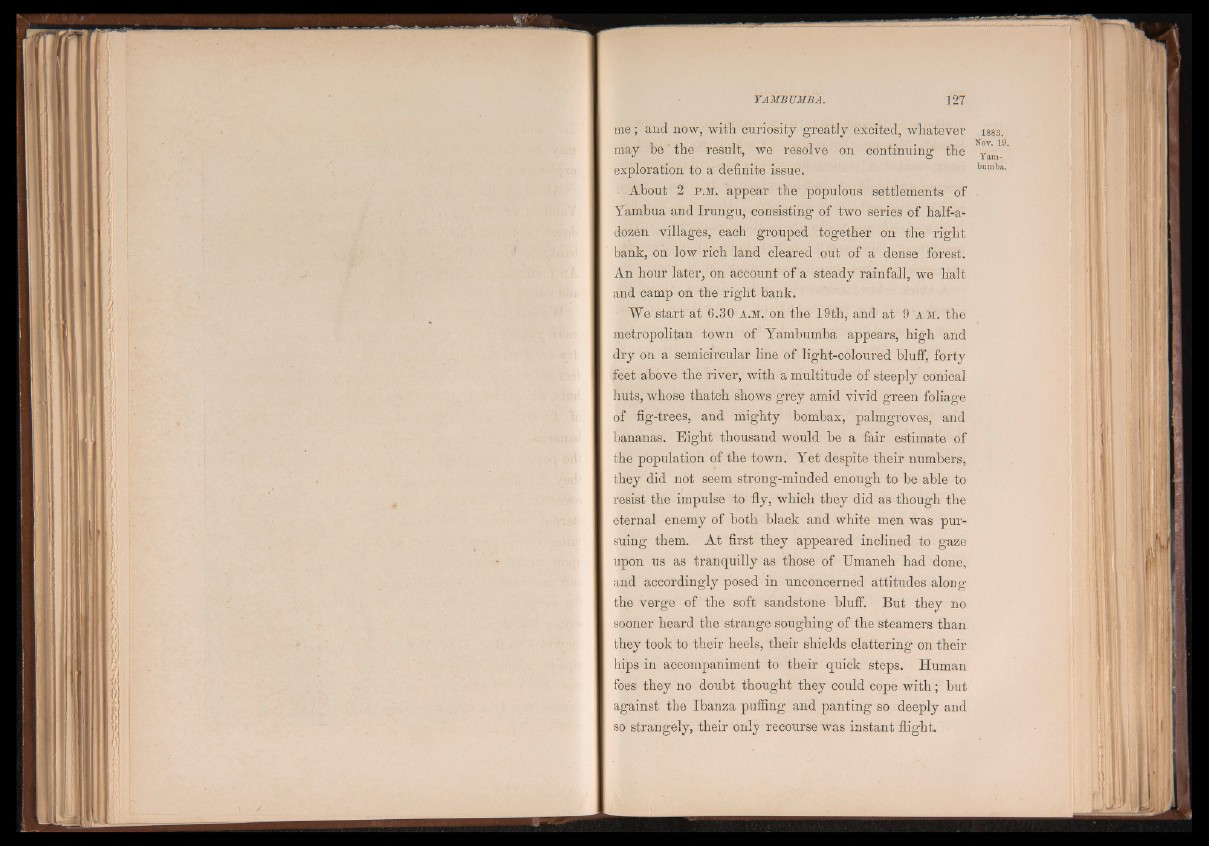
¡ 1
III:
1
II
YAMBTJMBA.
me; and now, with curiosity greatly excited, whatever
may b e ' the result, we resolve on continuing the
exploration to a definite issue.
About 2 p .m. appear the populous settlements of
Yambua and Irungu, consisting of two series of half-a-
dozen villages, each grouped together on the right
bank, on low rich land cleared out of a dense forest.
An hour later, on account of a steady rainfall, we halt
and camp on the right bank.
We start at 6.30 a.m. on the 19th, and at 9 a.m. the
metropolitan town of Yambumba appears, high and
dry on a semicircular line of light-coloured bluff, forty
feet above the river, with a multitude of steeply conical
huts, whose thatch shows grey amid vivid green foliage
of fig-trees, and mighty bombax, palmgroves, and
bananas. Eight thousand would be a fair estimate of
the population of the town. Yet despite their numbers,
they did not seem strong-minded enough to be able to
resist the impulse to fly, which they did as though the
eternal enemy of both black and white men was pursuing
them. At first they appeared inclined to gaze
upon us as tranquilly as those of Emaneh had done,
and accordingly posed in unconcerned attitudes along
the verge of the soft sandstone bluff. But they no
sooner heard the strange soughing of the steamers than,
they took to their heels, their shields clattering on their
hips in accompaniment to their quick steps. Human
foes they no doubt thought they could cope with; but
against the Ibanza puffing and panting so deeply and
so strangely, their onby recourse was instant flight.
Yambumba.